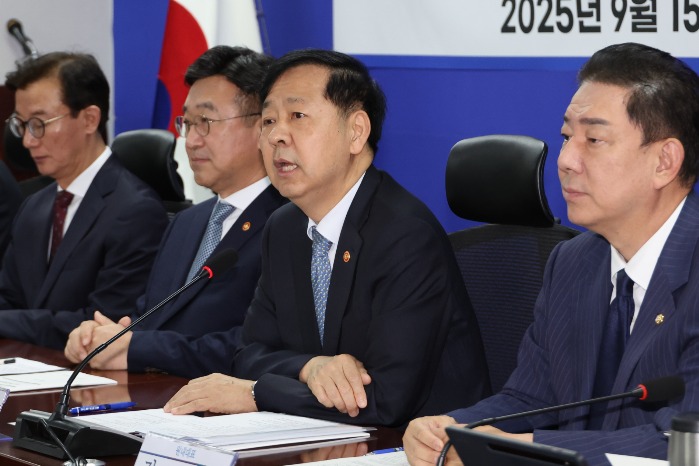In a significant policy shift, South Korea has decided to maintain the current capital gains tax threshold for large shareholders at 5 billion won (approximately $3.6 million), putting aside plans to reduce it to 1 billion won. This change follows considerable pushback from investors and rising concerns over its potential negative impact on the country’s financial markets.
This decision contrasts sharply with the ambitious tax-reform proposal put forth by the administration under Lee Jae Myung, which had introduced longer-term plans aimed at comprehensive tax reform, including an increase in the top corporate tax rate from 24% to 25%. Investors had expressed fierce opposition to the proposed capital gains tax adjustments, voicing that the stricter regulations would hinder market performance, which is contrary to President Lee’s commitment to elevating the Kospi index to 5,000.
Finance Minister Koo Yun-cheol remarked on the recent developments during a policy consultation with the ruling Democratic Party, emphasizing that the decision was influenced by public sentiment favoring a revitalization of the capital market. Koo stated, “Since announcing the reform plan in July, we have weighed how to balance between tax normalization and market revitalization.” He serves both as Finance Minister and Deputy Prime Minister, highlighting the government’s dual responsibilities in fiscal policy and economic growth.
Following signals that the threshold might not be altered, there was a modest uptick in the Kospi index on Monday, rising 0.3%. However, gains were limited, reflecting the mixed market sentiment surrounding the government’s announcement. The benchmark stock index had recently reached a record high of 3,314.53 last Wednesday and has continued to climb, supported by investor optimism regarding future government policies aimed at creating a more favorable investment climate.
In addition to holding steady on capital gains tax, the Finance Ministry detailed various upcoming initiatives to bolster the capital markets, including a substantial 150 trillion won National Growth Fund. Furthermore, the government is contemplating the introduction of a Korean equivalent of Business Development Companies, modeled on the U.S. system, aimed at funding unlisted and high-risk enterprises to drive innovation and economic progress.
The reversal on the capital gains tax signifies an ongoing effort by the South Korean government to strike a balance between fiscal responsibilities and the pressing need for economic stimulation, particularly within its financial markets.







